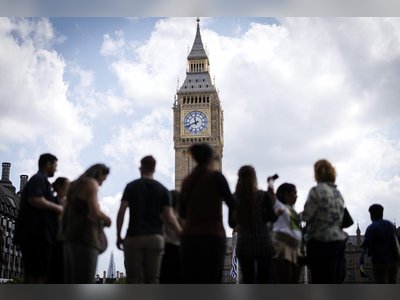Unraveling the Lucy Letby Enigma: Justice and the Complex Canvas of Intent
Ongoing investigations into neonatal deaths raise probing questions about the legal process, healthcare protocols, and human depravity.
In an unfolding narrative that grips the nation, the case of Lucy Letby stands at the unsettling convergence of crime, medicine, and morality.
Previously sentenced to life imprisonment for the murder of seven newborns, Letby’s case has re-emerged into public consciousness with fresh investigations into suspicious infant deaths.
She unyieldingly asserts her innocence amidst a backdrop that invites both condemnation and contemplation.
This escalation in judicial scrutiny—an examination affecting the care records of four thousand infants—signals an extraordinary pursuit of truth.
While some see this as diligent law enforcement, others warn of potential pitfalls in an ostensibly unrelenting quest for justice.
Indeed, Letby’s voluntary appearance for her latest police interview, without arrest, and her lawyer’s claim of exculpatory evidence, injects an intriguing element into an already complex legal saga.
Could these latest moves hint at cracks in her conviction, or merely represent tactical legal positioning?
The vast scope of the current inquiry raises broader concerns regarding hospital protocols and the capacity for one individual to operate unchecked within a supposedly secure system.
Testimonies, such as that from Dr. Brearey, point to a need for a systemic reflection on how anomalies are reported and addressed.
This case provokes anxiety about potential blind spots in healthcare, considerations that are as essential as they are uncomfortable.
Amidst these grim realities, the essence of the issue percolates around the balance between vigilant oversight and operational efficacy in clinical environments.
Excessive monitoring could impede the efficiency of patient care, yet neglecting scrutiny invites risk.
What is perhaps required is a fundamental cultural change within the healthcare ecosystem, reinforcing diligence without stifling the trust necessary for patient-centered care.
As Lady Justice Thirlwall spearheads the inquiry, this episode serves as a sobering reminder of the high stakes inherent in human error—or malevolence.
It emphasizes an imperative reflection on how to fortify patient safety and maintain justice within the harsh landscape of real-world tragedies.
The case of Lucy Letby, with its myriad layers, challenges societal perceptions of truth and deception, echoing the Bard’s sentiment that, in time, 'The truth will out.' To emerge from this collective introspection is, perhaps, the greatest lesson yet to be learned.
Previously sentenced to life imprisonment for the murder of seven newborns, Letby’s case has re-emerged into public consciousness with fresh investigations into suspicious infant deaths.
She unyieldingly asserts her innocence amidst a backdrop that invites both condemnation and contemplation.
This escalation in judicial scrutiny—an examination affecting the care records of four thousand infants—signals an extraordinary pursuit of truth.
While some see this as diligent law enforcement, others warn of potential pitfalls in an ostensibly unrelenting quest for justice.
Indeed, Letby’s voluntary appearance for her latest police interview, without arrest, and her lawyer’s claim of exculpatory evidence, injects an intriguing element into an already complex legal saga.
Could these latest moves hint at cracks in her conviction, or merely represent tactical legal positioning?
The vast scope of the current inquiry raises broader concerns regarding hospital protocols and the capacity for one individual to operate unchecked within a supposedly secure system.
Testimonies, such as that from Dr. Brearey, point to a need for a systemic reflection on how anomalies are reported and addressed.
This case provokes anxiety about potential blind spots in healthcare, considerations that are as essential as they are uncomfortable.
Amidst these grim realities, the essence of the issue percolates around the balance between vigilant oversight and operational efficacy in clinical environments.
Excessive monitoring could impede the efficiency of patient care, yet neglecting scrutiny invites risk.
What is perhaps required is a fundamental cultural change within the healthcare ecosystem, reinforcing diligence without stifling the trust necessary for patient-centered care.
As Lady Justice Thirlwall spearheads the inquiry, this episode serves as a sobering reminder of the high stakes inherent in human error—or malevolence.
It emphasizes an imperative reflection on how to fortify patient safety and maintain justice within the harsh landscape of real-world tragedies.
The case of Lucy Letby, with its myriad layers, challenges societal perceptions of truth and deception, echoing the Bard’s sentiment that, in time, 'The truth will out.' To emerge from this collective introspection is, perhaps, the greatest lesson yet to be learned.










